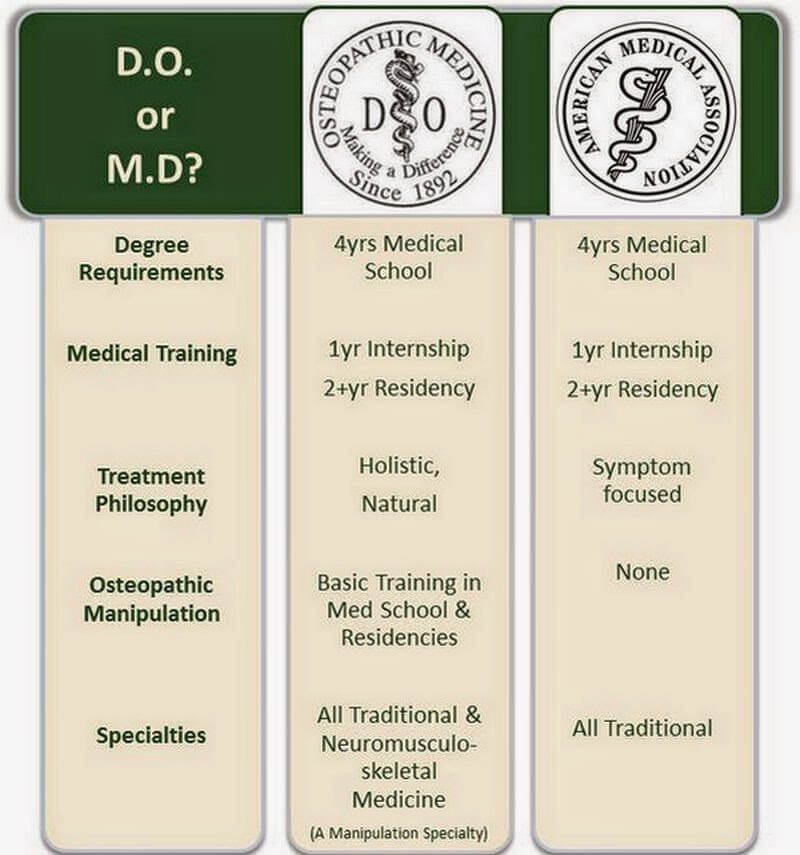The Distinction Between MD And DO

Are you considering a career in medicine but confused about the different degrees? Wondering what sets an MD apart from a DO? Let's delve into the differences between these two paths in the medical field and explore the unique qualities of each.
As you embark on the journey to become a physician, it's crucial to understand the disparity between the traditional Doctor of Medicine (MD) and the lesser-known Doctor of Osteopathic Medicine (DO). Both degrees lead to a career in medicine, but they encompass distinct philosophies, training, and approaches to patient care. To make an informed decision about your medical education, it's essential to grasp the disparities between MD and DO programs.
So, what exactly distinguishes an MD from a DO? How do their educational paths differ, and what implications do these differences have in the medical field? Join us as we unravel the disparities between MD and DO degrees and gain insight into the unique aspects of each.
What is the Educational Background for MD and DO?
MD: A Traditional Approach to Medicine
The path to becoming a Doctor of Medicine (MD) follows a conventional approach to medical education. Students pursuing an MD degree typically attend allopathic medical schools, where they undergo rigorous training in traditional medical practices. The curriculum for MD programs emphasizes the use of pharmaceuticals and surgery to treat illnesses, focusing on the symptoms and diseases of the body.
DO: A Holistic Approach to Medicine
On the other hand, the Doctor of Osteopathic Medicine (DO) degree takes a more holistic approach to healthcare. Osteopathic medical schools emphasize a whole-person approach to patient care, considering the interconnectedness of the body, mind, and spirit. DO students receive training in osteopathic manipulative treatment (OMT), a hands-on approach to diagnosing, treating, and preventing illness and injury.
What are the Philosophical Differences Between MD and DO?
MD: Disease-Centered Approach
MDs are trained to focus on the specific disease or ailment afflicting a patient, aiming to alleviate symptoms and cure the underlying condition. The traditional medical model followed by MDs centers around evidence-based practices, pharmaceutical interventions, and surgical procedures to address health issues.
DO: Patient-Centered Approach
DOs, on the other hand, adopt a patient-centered approach to healthcare, considering the individual as a whole rather than just the symptoms they present. Osteopathic philosophy emphasizes the body's innate ability to heal itself and places a strong emphasis on preventive care, lifestyle modifications, and the holistic well-being of the patient.
How Do MD and DO Differ in Residency and Specialization?
MD Residency and Specialization
After completing medical school, MDs pursue residency training in various specialties, such as internal medicine, surgery, pediatrics, or psychiatry. They may choose to specialize further through fellowship programs, honing their expertise in specific areas of medicine.
DO Residency and Specialization
DOs also undergo residency training in primary care and specialty fields, similar to MDs. However, osteopathic physicians have the option to pursue postdoctoral training in osteopathic manipulative medicine and osteopathic neuromusculoskeletal medicine.
What is the Scope of Practice for MD and DO?
MD Scope of Practice
MDs practice in diverse healthcare settings, including hospitals, clinics, and private practices, providing a wide range of medical services. They may also hold leadership positions in healthcare organizations and contribute to medical research and academia.
DO Scope of Practice
DOs also have a broad scope of practice, offering medical care in various settings. Osteopathic physicians are particularly recognized for their expertise in musculoskeletal manipulation and may integrate OMT into their patient care practices.
What Are the Similarities Between MD and DO?
Despite the differences in philosophy and training, MDs and DOs share several similarities. Both types of physicians are licensed to practice medicine, prescribe medication, perform surgeries, and provide comprehensive care to patients. Additionally, both MDs and DOs uphold the highest standards of ethical and professional conduct in their medical practice.
Which Degree Should You Choose: MD or DO?
Ultimately, the decision to pursue an MD or DO degree depends on your personal values, career goals, and aspirations as a future physician. Consider the philosophical approach to healthcare that resonates with you, the type of medical practice you envision, and the patient population you aim to serve. Whether you choose to become an MD or a DO, both paths lead to fulfilling careers in medicine, dedicated to improving the health and well-being of individuals and communities.
ncG1vNJzZmibn6Gyb63MrGpnnJmctrWty6ianpmeqL2ir8SsZZynnWSxqrLFnqmeppOaeqOx07CcnqZdorFurc2dZJ2nXp3Brrg%3D